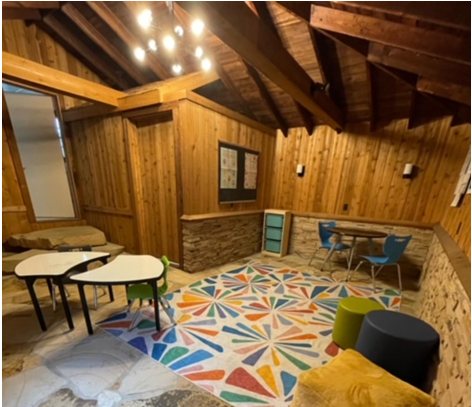
Modeled on Acton Academy’s educational approach toward self-directed learning, Apollo Academy will open this fall in Tampa.
“Acton is a learner-driven approach. It literally flips the education system upside down. It’s highly focused on teaching students how to think, to do, to be, to know.” –Beth Ann Valavanis
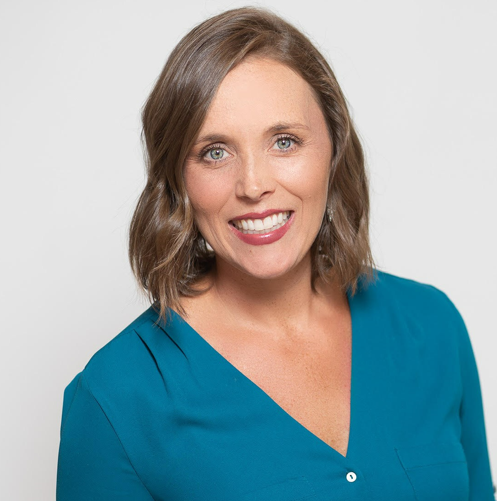
Beth Ann Valavanis
A former healthcare executive is among a growing number of entrepreneurs taking a hard look at traditional education models, hoping to forge a path beyond lectures, homework, tests, and strict timelines for mastering skills.
Beth Ann Valavanis, a graduate of district schools in the Atlanta area and the University of Georgia, had planned to enroll her daughter, Emilia, in one of South Tampa’s highly rated district schools. But then she was introduced to a book written by Laura Sandefer, who with her husband, Jeff, co-founded Acton Academy. Sandefer’s book inspired Valavanis to start a K-5 school following Acton’s principles of self-directed learning.
Based in South Tampa, Valavanis’ Apollo Academy is one of several Acton affiliates opening this fall in Florida. (Click here for a list of Acton affiliates across the United States.)
Valavanis spoke with reimaginEDonline about how she became an Acton affiliate and her reasons for launching Apollo Academy. Answers have been edited for brevity and clarity.
Q. What made you want to start a school?
A. Apollo Academy came into existence for two reasons. One is that I have a two-and-a-half-year-old, and the Acton approach just aligned with what my husband and I want for our family. And, I had been working in business for the last 14 years running companies and had sold a private equity company, and I knew whatever I did next was going to have to be centered around affecting my local community. I didn’t know I was going to be starting a school.
Q. How did you discover Acton Academy?
A. We had been living between Chicago, Atlanta, and Tampa Bay. Once we had Emilia, we said, ‘If South Tampa is going to be our home, we’ve got to start exploring some options.’ During the summer of 2020, I was working, going to the office every day, and I started listening to books about childrearing. It was during a time of tension – George Floyd was killed - and I thought, ‘This is not the world I want my daughter to grow up in.’ Someone recommended Laura Sandefer’s book, “Courage To Grow.” I’d get to work in the morning and wouldn’t want to get out of my car. I listened to all of it in two-and-a-half days.
Q. What attracted you to the Acton’s model?
A. Something just clicked for me. We had thought of sending our daughter to public schools, because my husband and I went to public schools, and our experience was fine. There are a lot of really great public and private schools here, but the only option if you don’t want to drive longer than 15 minutes is a religious school. Also, a lot of things came back to me from my educational experience as I started exploring Acton. For example, I remember starting work at KPMG International and someone asked me a question that I didn’t have an exact answer for, and I remember thinking, ‘No one really taught me how to think.’ When I started exploring Acton, I realizes this is a great fit for our family. Once you know, you can’t unknow.
Q. I understand that Acton approves only a small number of the more than 1,000 applications they receive each year. What did you have to do to be named an affiliate?
A. It’s kind of like Cross Fit. You have a lot of autonomy, but you have to be approved to use the rights and get access to all the curricula. It was an audition process, a lot of essays, videos, and confirmation that I did a lot of research on my own. They look for educators and entrepreneurs who just know there’s got to be a better way to educate children.
Q. What needs do you hope to fill for families as an Acton affiliate?
A. In South Tampa, there are no alternative options short of homeschooling. There is a huge need for other options that do education a little differently because some students do not fit into the box of traditional schools.
Q. How does Acton do education differently?
A. Acton is a learner-driven approach. It literally flips the education system upside down. It’s highly focused on teaching students how to think, to do, to be, to know. When you provide an environment that harnesses children’s curiosity and allow them to explore at will, to fail quickly, often, and cheaply, and to celebrate that, that’s so freeing. To think that my daughter could be in a place where it’s not, ‘You failed, so you get a C; let’s move on,’ it’s ‘Why don’t you stay with this a little bit longer, try something different until you get mastery,’ because that’s what the world is really like.
Q. Is it true that Acton requires no memorization and no homework?
A. In 2022, we don’t need to memorize anything anymore. We have everything in a device held in our hands. As for assigned homework, there is none. I have friends who are so beaten down that the only quality time they get with their children is at the dinner table when they are trying to make them do worksheets. There is a program Acton students do that they master involving basic math, but they do it at their own pace. They won’t have to memorize the names of every U.S. president.
Q. Apollo’s tuition is $10,000 a year. That’s out of financial reach for some families. Will your school participate in Florida’s school choice scholarship program, or would you consider participating in an education savings account program that allows families to use their funds for non-traditional schools if the Florida Legislature approves one?
A. So many parents call, and the first question is, ‘Do you take the scholarships?’ So, I know there’s market for it. I have served as a guardian ad litem, and I think that worked to shine a new light for me on disparities that exist in education. Two students in an area can go to two public schools, but the experience is vastly different. We are very affordable, but our goal hopefully for next year is to accept school choice scholarships.

Sapna Academy, brainchild of former district teacher Jo Lawson, offers student-centered learning experiences two to four times per week and is housed in the link, a 22,500 square-foot, high-tech community hub in St. John's County.
Jo Lawson never experienced the stress of taking a high-stakes standardized test. The private schools she attended from kindergarten through 12th grade weren’t required to give the tests, which can be used to determine student promotion, teacher employment evaluations, and whether a school lands on the dreaded “underperforming” list.
After graduating with an education degree from Flagler College in 2009, Lawson began teaching in district schools. The idealistic rookie found the red tape and seemingly endless testing soul-crushing.
“I was just kind of thrown into this world and I felt very alone,” Lawson recalled. “I didn’t realize the bureaucracy of a public school and how difficult it really is to get anything done.”
Lawson’s frustration reached a fever pitch when, after questioning the direction to administer yet another test, her principal admitted the only reason Lawson’s students had to take the test was because the district had already paid for it, and leaders didn’t want to waste money.
So, Lawson took a stand. Not only did she refuse to give the test, she put it in writing. Soon after, she informed her bosses that she wouldn’t be back the following year. She took a break to be a full-time mom to her infant daughter.
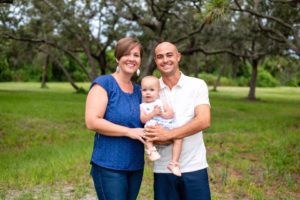
Jo and Justin Lawson and their daughter Juno
The episode convinced her that education, which she always had experienced as an adventure, needed to look radically different if students were going to succeed in the 21st century. Her epiphany, coupled with a desire to provide that experience for her two daughters, inspired her and her husband, Justin, to start Sapna Academy, a learning and tutoring center in St. Johns County that focuses on self-directed learning.
The center is affiliated with Agile Learning Centers, a rapidly growing global network of secular alternative schools where kids design their own education. It resembles the unschooling movement that began in the late 1960s that allowed students to focus on their own interests.
(You can listen to a two-part podcast with an unschooling expert here and here.)
Sapna, which offers experiences two to four times per week, is housed in the link, a 22,500 square-foot, high-tech community hub. With a mission statement of learn - play- think – do, the link offers co-workspace and serves as a business incubator. Perhaps its most impressive feature is the immersive room, a space that uses virtual reality and other technology to allow occupants to have experiences as if they were physically present.
“It lets you go anywhere in the world,” explained Lawson, who expects to use it for virtual field trips.
Lawson and her husband began their project by setting up as a limited liability company and naming it the School of Athens. While looking for a space, they met Raghu Misra, the link’s founder and an advocate of student-led learning. When Misra, an opponent of high-stakes testing himself, heard about the Lawsons’ plans, he was so impressed that he offered to let them partner with him and operate at the link as a nonprofit. They changed the name to Sapna Academy.
"Sapna Academy has a vision of providing different ways to learn” Misra said. “We want each person to feel like they can succeed at their own pace with the help of our knowledgeable instructors and state-of-the-art experiential learning tools that will provide them with unique experiences geared towards developing skills in areas they are interested in, all while having fun.”
At Sapna, students are divided into two groups, “Roots” ages 4 to 8, and “Branches” ages 7 to 18. Students are free to move between the groups if they choose. Summer programs, called “offerings,” include algebra prep, “The Art of Storytelling,” and “Getting to Know the Masters,” in which students study the world’s greatest visual artists.
“We might start with Monet and then let students do watercolor paintings,” Lawsons said. “The first offerings were driven by our passions, but we will add new offerings based on the students’ passions.”
In addition to virtual reality field trips, Lawson’s long-term vision includes guest speakers, yoga classes taught by a certified yoga instructor, and seminars for middle schoolers considering district high school career academies.
The idea, Lawson said, is to help them make more informed choices before it’s too late and they end up on a career track that isn’t the right fit.
“We want to help public school students, too,” she said.
The possibilities are pretty much endless, which Lawson said is the beauty of self-directed learning.
“My vision for my learning center is that children will take the helm,” she said. “They will be at the forefront of their education, and I will be there to facilitate it and to help them get on the right path.”
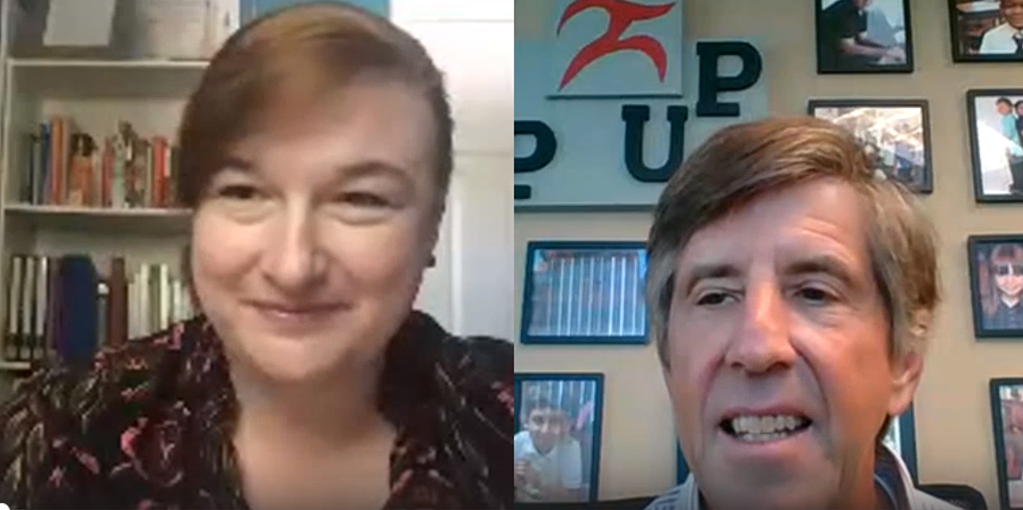 On this episode, Tuthill talks with Riley, clinical professor of adolescent special education at Hunter College, about “learning through living.” Author of “Unschooling: Exploring Learning Beyond the Classroom,” Riley has direct experience with the topic, having been a 20-year-old self-determined mother who raised her son using this discipline.
On this episode, Tuthill talks with Riley, clinical professor of adolescent special education at Hunter College, about “learning through living.” Author of “Unschooling: Exploring Learning Beyond the Classroom,” Riley has direct experience with the topic, having been a 20-year-old self-determined mother who raised her son using this discipline.
Since then, she has become internationally known for her work in the fields of homeschooling, unschooling and self-directed learning, conducting extensive research on these topics. (See here, here and here.)
Tuthill and Riley discuss how interest in self-directed learning and intrinsic motivation is growing during the pandemic. Both believe the trend will continue as more families find value in a different approach to education, especially as technology continues to alter the way education works and looks.
"Unschoolers are so good at learning how to learn. If they don’t know something or haven’t come across something ... they know how to learn it, they learn how to do it."
EPISODE DETAILS:
· The history of unschooling and how it differs from homeschooling
· Research on unschooling outcomes and opinions on the model from parents and children who have participated
· Criticism of children “not knowing” what they need to learn and the non-linear nature of learning
· The possibility of making the benefits of unschooling available in a top-down model like a school district
LINKS MENTIONED:
Unschooling: Exploring Learning Beyond the Classroom
Research – The challenges and benefits of unschooling
Research – Grown unschoolers’ evaluation of their unschooling experience
Research – Grown unschoolers’ experience with higher education and employment
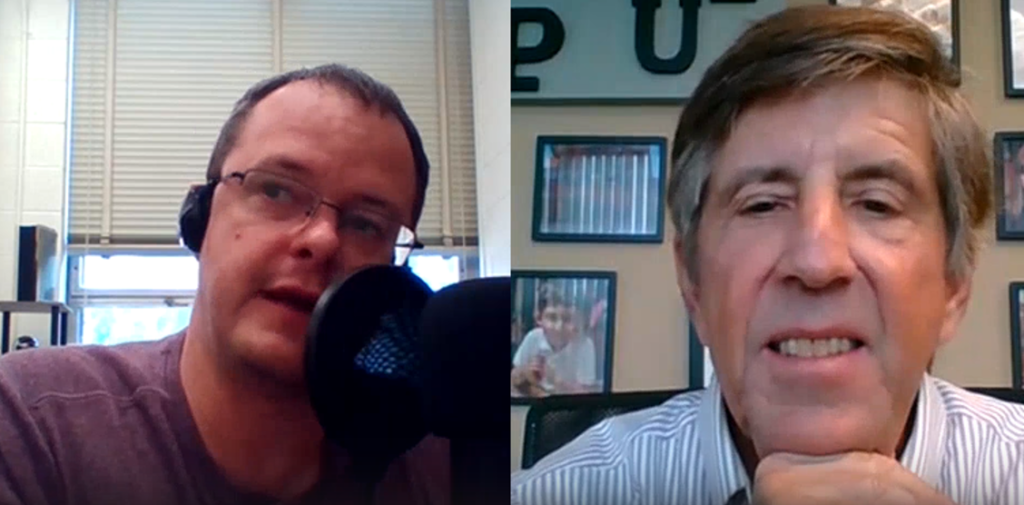 In the first of a two-part discussion, Tuthill speaks with a premier thought leader on self-directed learning, also known as ‘unschooling.’ Currie-Knight, a teaching assistant professor at East Carolina University’s College of Education, supports education based on intrinsic motivation, or learning based on a child’s interests, which differs from more traditional education based on extrinsic motivation centering on grades and transcripts.
In the first of a two-part discussion, Tuthill speaks with a premier thought leader on self-directed learning, also known as ‘unschooling.’ Currie-Knight, a teaching assistant professor at East Carolina University’s College of Education, supports education based on intrinsic motivation, or learning based on a child’s interests, which differs from more traditional education based on extrinsic motivation centering on grades and transcripts.
Tuthill and Currie-Knight discuss Currie-Knight’s work with Pathfinder Community School, a learning environment in which children self-direct their instruction. They also discuss how unschooling often is dismissed as a privilege of the rich, an irony considering the critique most often is leveled by opponents of education choice.
“If you give kids freedom over their learning, expect them to be doing things all the time. At some point they're going to learn things ... People will be surprised at how tenaciously kids learn when they have a reason to."
EPISODE DETAILS:
· Self-directed learning and how kids figure out what they need to know
· What self-directed learning looks like on a day-to-day basis
· Changing two century-old perceptions on how children learn
· How COVID-19 has shifted education perceptions
· Criticisms of unschooling and their origin
LINKS MENTIONED: